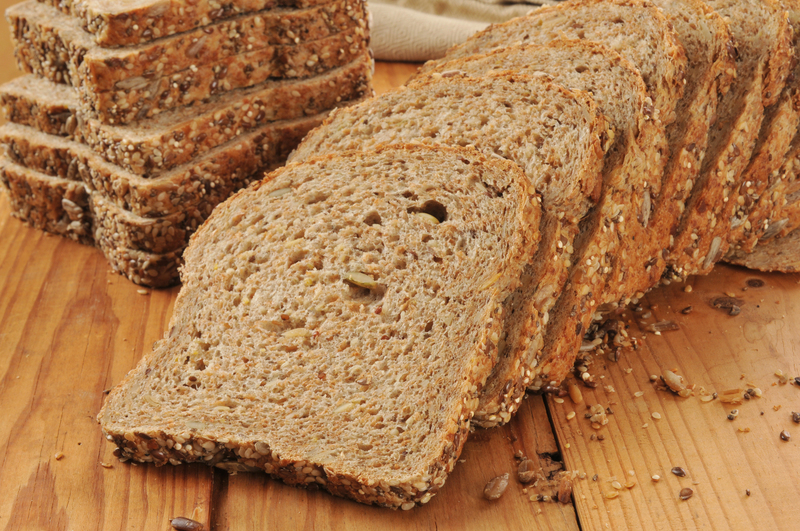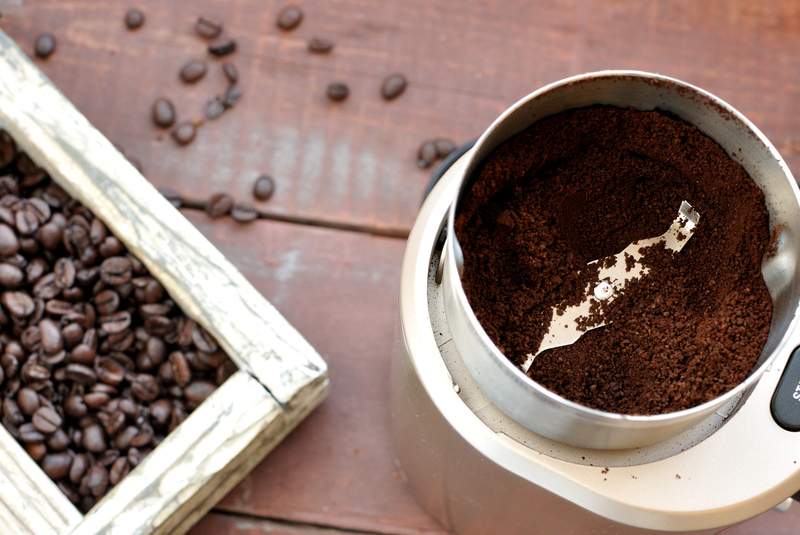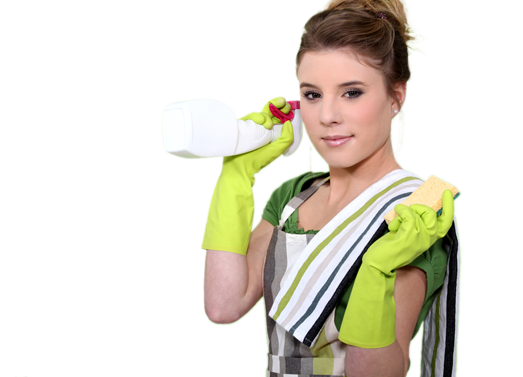Wave Farewell to Pet Odors and Embrace Clean Air
Posted on 18/08/2025
Wave Farewell to Pet Odors and Embrace Clean Air
For many, pets are cherished family members who bring love and joy into the home. However, every pet owner knows that these lovable animals can sometimes leave unpleasant pet odors behind. Whether it's a wet dog smell, litter box stench, or the lingering scent of a recent accident, pet odors can disrupt the harmony of your living space. Fortunately, battling and conquering these odors is possible. Let's explore in-depth solutions to help you wave farewell to pet odors and embrace fresh, clean air in your home.
Understanding the Origin of Pet Odors
To effectively eliminate pet odors, it's crucial to understand what causes them:
- Body Oils: Pets naturally produce oils that, when absorbed by fabrics or carpets, can create persistent smells.
- Accidents: Even the best-trained pets can sometimes have accidents, and urine odors are notoriously tough to eliminate if not promptly addressed.
- Litter Boxes and Cages: Improper maintenance or infrequent cleaning of litter boxes, aquariums, and cages leads to strong and unpleasant odors.
- Pet Beds and Toys: Over time, fabric and plastic items absorb smells from saliva, fur, and skin oils.
- Dander: Pet dander not only triggers allergies but also contributes to an overall musty smell if not regularly cleaned away.
By targeting the root causes of pet odors, you can achieve lasting freshness and enjoy inviting, clean indoor air.

Why Clean Air Matters for You and Your Pets
You may wonder why it's so important to eliminate pet smells and strive for cleaner air. Here are some reasons:
- Health: Prolonged exposure to pet dander, ammonia from urine, and bacteria can worsen allergies and cause respiratory issues--especially for children, seniors, and immunocompromised individuals.
- Comfort: A fresh-smelling home feels more welcoming for guests and more comfortable for household members.
- Pet Well-Being: Pets prefer clean, odor-free environments, improving their overall health and happiness.
Clean air is an investment in your quality of life--and your pets' too!
Essential Steps to Eradicate Pet Odors
1. Deep Clean the Affected Areas
Thorough cleaning is the foundation of any successful odor elimination process. If your pet has urinated or vomited on carpets, furniture, or other fabric surfaces, spot-treat the area immediately.
Here's how to properly clean up odors:
- Blot fluids with paper towels--never rub, as this drives stains and odors deeper.
- Use enzymatic cleaners designed specifically for pet odor removal. These break down odor-causing molecules, rather than just masking them.
- For persistent odors, steam clean carpets and upholstery.
- Launder throw rugs, cushion covers, and pet bedding frequently using detergents enhanced with baking soda.
- Repeat cleaning as needed until the odor is completely gone.
2. Address Litter Box and Cage Hygiene
Regularly clean your pet's "bathroom" to minimize pet odors at the source:
- Scoop litter boxes daily and change litter at least once a week.
- Sanitize cages, tanks, or hutches regularly with mild, pet-safe cleaners.
- Use odor-absorbing or antimicrobial litter products.
- Consider an air purifier near animal enclosures to trap airborne smells and dust.
Consistent cleaning routines are essential for controlling airborne pet smells.
3. Wash Pet Belongings Frequently
Pet beds, blankets, and even plush toys can develop a stubborn odor over time.
- Wash bedding weekly in hot water with unscented detergent and a cup of white vinegar or baking soda for extra odor-fighting power.
- Wipe down rubber or plastic toys using a diluted solution of water and vinegar.
- For items that can't be laundered, sprinkle with baking soda, let sit for 15 minutes, then vacuum thoroughly.
4. Improve Air Quality Throughout Your Home
Achieving fresh, clean air goes beyond deodorizing. Focus on these smart strategies:
- Ventilation: Open windows daily to let out stale air and let in fresh outdoor breezes.
- Air Purifiers: Use HEPA filters or specialized pet air purifiers to trap dander, hair, and odor molecules.
- HVAC Maintenance: Change HVAC filters monthly and schedule annual duct cleaning.
- Houseplants: Add non-toxic houseplants that naturally purify the air, such as Boston ferns or spider plants.
5. Groom Your Pet Regularly
Grooming is important for preventing odors before they start.
- Bathe dogs and cats as recommended by your veterinarian. Avoid over-washing, which can lead to skin irritation.
- Brush your pet's coat frequently to reduce shedding and dander buildup.
- Keep nails trimmed and clean--dirty paws can track bacteria and smells indoors.
- Regularly inspect ears and teeth, as infections can contribute to household odors.
Healthy pets are less likely to produce unpleasant smells!
Natural and DIY Remedies for Pet Smells
1. Baking Soda: The Ultimate Odor Neutralizer
Sprinkle a thin layer of baking soda on carpets, couches, or even in litter boxes to absorb and neutralize pet odors. Wait at least 15 minutes (or overnight for tough smells), then vacuum thoroughly.
2. Vinegar: A Tried-and-True Solution
Clean hard surfaces, floors, and even some fabrics using a mix of equal parts white vinegar and water. Not only does vinegar kill odor-causing bacteria, but it also dissolves residues left behind by pets.
3. Essential Oils (Use Caution!)
Certain essential oils, such as lavender or lemon, can help refresh the air. However, always research and verify which oils are safe for your specific pets, as some can be toxic to animals.
4. Activated Charcoal and Odor Absorbers
Place bowls of activated charcoal or commercial odor absorbers near problem areas to help trap odors from the air.
Products That Help Eliminate Pet Odors
Fortunately, the market offers a variety of products specifically made to remove pet odors and keep your home smelling pleasant:
- Enzymatic Cleaners: These are designed to digest and break down organic stains and smells at the molecular level, making them effective for urine, vomit, and fecal accidents.
- Pet-Safe Deodorizers: Sprays and powders made for pets are formulated to be safe in areas where they sleep and play.
- HEPA Air Purifiers: Units with HEPA and activated carbon filters efficiently capture airborne allergens and odor molecules.
- Odor-Blocking Litter: Choose litter that contains odor-neutralizing crystals or carbon for best results.
Avoid These Common Mistakes
Even the most diligent pet owner can fall into some typical traps. To truly bid farewell to pet smells, avoid these mistakes:
- Masking Instead of Removing: Relying on air fresheners or scented candles merely covers up odors but won't actually solve the problem.
- Ignoring Regular Cleaning: Letting cleaning tasks slide even for a few days can let odors build up quickly.
- Using Harsh Chemicals: Bleach and ammonia-based cleaners may react with pet urine, making odors more intense or potentially risking your pet's health.
- Neglecting Hard-to-Reach Spots: Odors often hide in hidden nooks, under furniture, or along baseboards. Don't forget these spots during your cleaning routine!
Long-Term Maintenance for an Odor-Free Home
1. Create a Cleaning Schedule
Consistency is key. Develop a cleaning checklist tailored to your home and pets:
- Daily: Scoop litter boxes, pick up waste from the yard, sweep floors, and spot-clean any messes.
- Weekly: Wash bedding and toys, vacuum carpets and furniture, and mop hard floors.
- Monthly: Deep clean all pet areas, replace air filters, and check for signs of mold or accumulated grime.
2. Pet Health = Less Odor
Routine veterinary visits help ensure that your pet's digestive, urinary, and skin health are optimal--reducing the risk of smelly accidents or medical conditions causing odors.
3. Train Your Pet
Proper training around litter box habits or outdoor toileting is critical for minimizing inappropriate elimination and, thus, odor.
When to Call in Professional Help
Sometimes, strong pet odors can persist despite your best efforts--especially if there are old, set-in stains or pervasive air quality issues. In such cases, consider:
- Professional Carpet & Upholstery Cleaning: Experts have stronger equipment and specialized treatments that can revive even the most stubborn-smelling fabrics.
- Air Duct Cleaning: Over time, pet hair and dander collect in HVAC systems, reducing indoor air quality. Professionals can clear out buildup and improve air flow.
- Odor Remediation Specialists: For severe, lingering smells (especially after pet accidents), remediation specialists can thoroughly treat your home.

Pet-Safe Scent Solutions: The Finishing Touch
Once existing odors are gone, use these pet-safe strategies for keeping the air fresh:
- Simmer a pot of citrus peels, herbs, and cinnamon sticks on your stovetop.
- Diffuse only vet-approved, non-toxic essential oils in moderation.
- Try natural odor absorbers like bowls of vinegar, coffee grounds, or baking soda in problem zones.
- Keep windows open when possible for natural ventilation.
Embrace Clean Air: Enjoy Your Home with Your Pets
By following these best practices for eliminating pet odors and improving indoor air quality, you can wave farewell to pet odors and truly embrace clean, pure air. Your home will be fresher, healthier, and more inviting--for both humans and pets. With the right cleaning habits, products, and a little bit of love and diligence, there's no reason pet ownership should come at the expense of having a wonderful-smelling home.
Say goodbye to pet odors--for good. With every whiff of freshness, you'll be grateful you made clean air a priority. Start today and experience the difference that lasting freshness can make!
Let your home reflect not only the joy pets bring but also the freshness you deserve. Wave farewell to pet odors and embrace clean air--your household happiness (and your guests' noses) will thank you!




